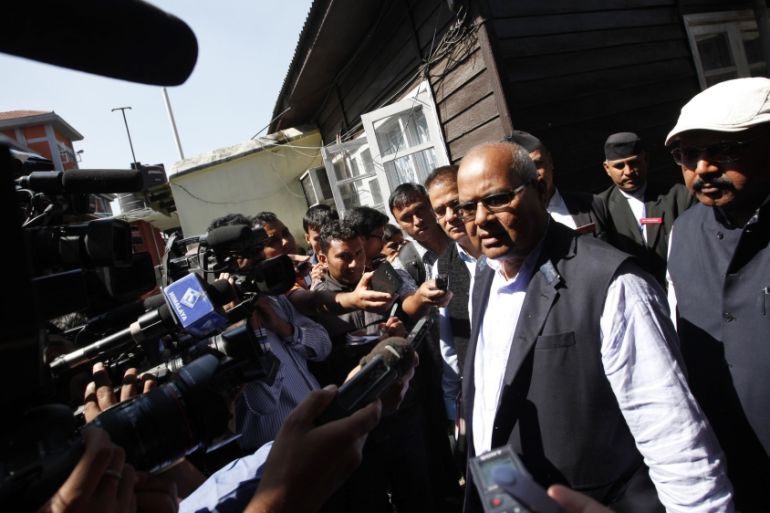Nepali minority meets government over ongoing protests
Protesters, most of whom belong to the Madhesi and Tharu ethnic communities, have demonstrated against a new charter.

Nepal government negotiators have met the main group opposing the new constitution but failed to reach an agreement that would end the group’s protests.
Laxman Lal Karna of the United Democratic Madhesi Front said that government negotiators did not present a solid proposal to end the protests in southern Nepal near the Indian border during the meeting on Tuesday. The protests have stopped the flow of fuel and supplies to the country’s north, including the capital.
Keep reading
list of 4 itemsEurope pledges to boost aid to Sudan on unwelcome war anniversary
Birth, death, escape: Three women’s struggle through Sudan’s war
Does Israel twist humanitarian law to justify Gaza carnage?
|
|
Both sides, however, said they would continue talks and meet again in Kathmandu on Wednesday. Government minister Mahesh Acharya said all the issues were discussed and the team was hopeful for a resolution soon.
RELATED: Nepali minority group blocks Nepal-India trade route
The Front is the main group leading protests in the south that lead to clashes between police forces and protesters, resulting in the deaths of at least 45 people.
The protesters, most of whom belong to the Madhesi and Tharu ethnic communities, are demonstrating against plans to divide the country into seven federal provinces under a charter adopted last month. The groups say the new internal borders leave them underrepresented in the national parliament.
The charter, which is Nepal’s first of its kind to be drawn up by elected officials, is the final stage of a peace process that began when Maoist fighters gave up their arms in 2006 after a decade-long rebellion that pitted them against the state.
RELATED: Will a new constitution bring stability to Nepal?
The Maoists subsequently focused their efforts on electoral politics, and they eventually won the parliamentary elections in 2008, after which they abolished the monarchy. The drafting of the charter began that year, but progress has been slow due to political infighting and sharp disagreements between parties.
Legislators reached an agreement in June this year, spurred by a 7.8-magnitude earthquake two months earlier that killed nearly 8,900 people and destroyed more than half a million homes.